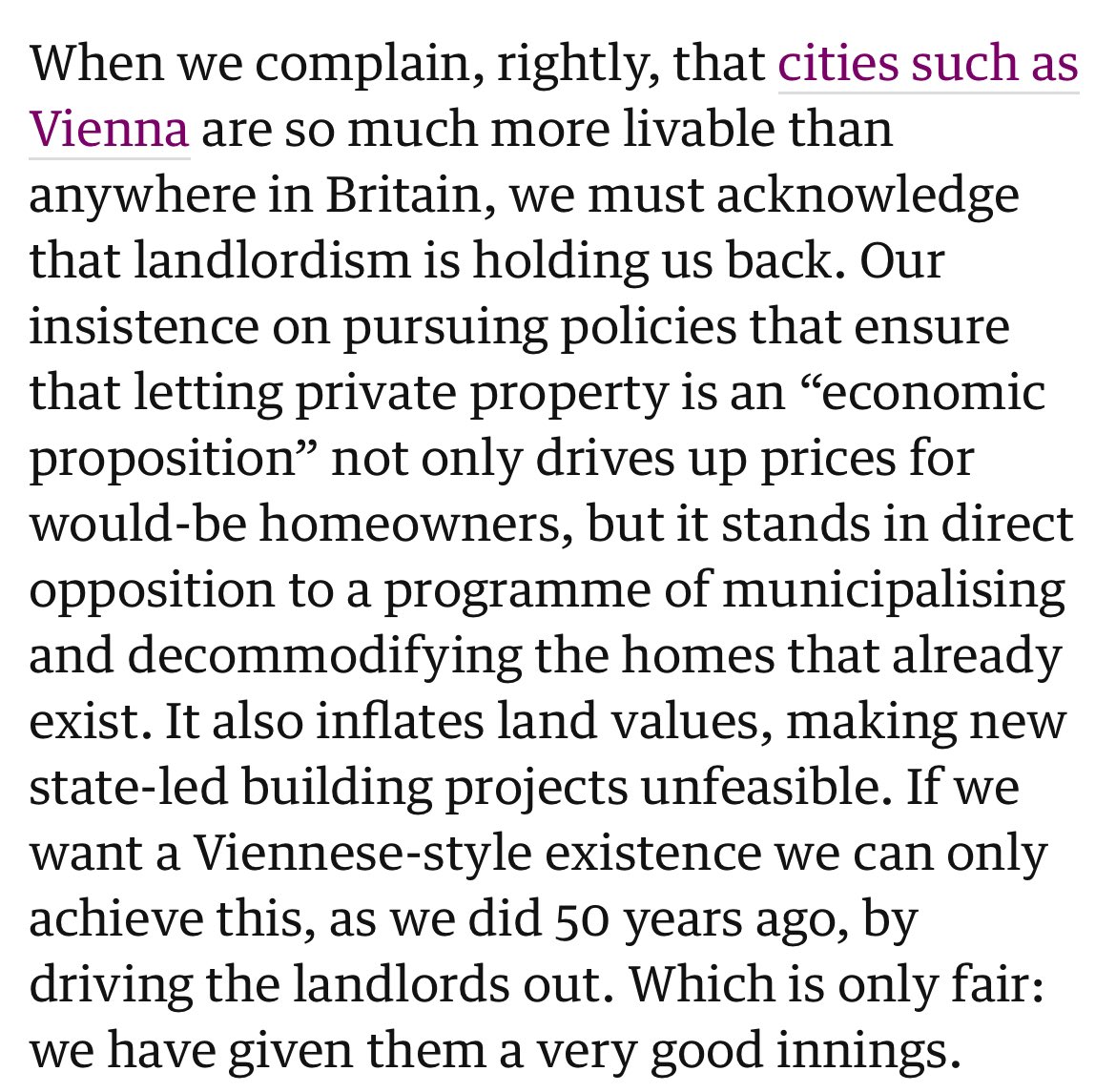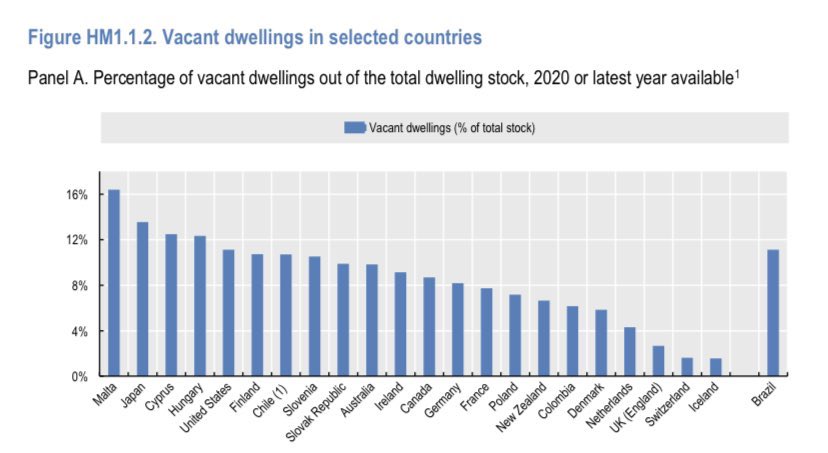views
Ok, I have had enough wine to engage with this insane piece. It’s time to get started.
https://twitter.com/guardian/status/1770036659955921120
Here is a round up of recent studies.
https://twitter.com/ironeconomist/status/1752436614792404995
Meanwhile this is what is happening in Austin Texas in response to a large program of building. Academic literature is consistent: a 1% increase in stock leads to a 1-2% decline in rents. In the Uk, assuming we build in sensible places, every 260k homes reduces rents 1-2%. 

A further problem with this post is that the UK is so supply constrained that essentially every new house results in a new household formation. Over the last few years vacancies have been falling.
This means that if you build even one new home, the mechanically the number of households has increased less than the number of new homes. People imagine household=family, but the ons definition of household is any group of people that share a kitchen/living space.
We could have a market where people are living 3 to a bed and still if even one person buys a second home then mechanically houses grew faster than households.
If we were building enough that household formation was in no way constrained then vacancies would be growing one for one with new houses. As people move out of older stock into the new houses, but as previously mentioned vacancies have been falling.
This line is constantly repeated by people safe in the knowledge the public doesn’t consider two unrelated families sharing a flat to be ‘one household’ even though it is by the ONS definitions. But eg, France has 6 million more households for the same population!
So this again is a weird point. The equilibrium number of houses depends on living arrangements which themselves depend on house size. Netherlands and Canada themselves consider they are having a housing crisis. 

Heavily Catholic Poland has far more children and many fewer divorcees resulting in an equilibrium that has fewer but larger households. It’s a bit hard to find reliable data but it seems in the US the average dwelling is almost twice the size as in the Uk.
Here MattY points out that NY has similar average dwelling size to the whole of the uk and Uk dwelling sizes are shrinking. Hardly the sign of abundance. slowboring.com/p/the-uk-reall…




This bit is kind of true but also kind of missing the point. In the great inflation order and richer people who mainly owned fixed income investments were decimated. High interest rates made government bonds attractive and all assets got cheap. Right as real wage growth exploded.








But also the UK started the post war era in a pretty good position on housing, then a period of lower building and strong population growth started to erode it, but our current position was a shortage 70 years in the making.
@watling_samuel has an excellent article for works In Progress with the following graphs - we have just been building less than most of our European peers since ww2.




@watling_samuel This is just an incredible misunderstanding of, well, life the universe and everything. Construction is a flow business. Buy unimproved land, add a house. Sell at a higher value. The more you do it the more money you make. 

Why on earth would a developer let a competitor buy a plot of land, build on it, and make a profit? In the Uk we deeply constrain the supply of land, so the land that is available is bid up to in name prices that make it hard to make a profit.
And now Vienna. People love to talk about Vienna. They talk about all its housing policies except the one that matters…Vienna Builds! 

Firstly, the article mentioned how many houses the UK has in OEcD. You might imagine, were this a coherent argument, that Austria, being brought up, might be similar. Austria has about 90 more homes per 1000 people. Scaled up that’s 6.3m more houses for the uk. 

And you might think that Austria, was somehow pursuing the anti supply polices of the Uk? You would be wrong. Austrias current build rates is well over 2% of stock annually. Roughly equivalent to 630k houses per year in the Uk. 

If we in the uk build 630k new houses annually we do could have liveable cities in a few decades. Just unreal that people bring up Vienna’s social housing policy without mentioning that they made housing so absurdly abundant that market rates are cheap.
It’s insane how high these rates are. Scaled up London would have build 81k houses annually for decades. More than 2x as high as current rates. The whole of the uk is only building 200k homes annually!
And the developers won’t build argument is just completely annihilated by the existence of Texas. fortune.com/2024/03/05/tex…
Austin is the same size as Vienna. And it build 15k houses *last quarter*. Scaled up to London size and that would be 250k houses annually for London alone! More than the whole of the UK builds!
We have a weird situation in the Uk, where land lord power comes from under building. Once tenants have to compete with each other for homes, land lords become renters charging ever higher prices while doing nothing. 

The cure for this is to build more homes. Once landlords have to compete for tenants, because the vacancy rates are approaching normal markets with 7-10% vacancy rates, then landlords who don’t renovate don’t get tenants.
And now we come to my favourite graph. The one that shows housing market tightness beyond all doubt - the UK market just has v few vacant homes. Despite the fact that our urban geography has changed a lot over the last 40 years. 

Until vacancy rates climb, landlords will have all the power. Attempts to try and regulate this power away are doomed to failure: see how eg Edinburgh’s rent control let to massive rises in asking rents. Market power leaks round the edges of any legislation. Only abundance works.
If for some reason you are still doubting that the Uk has a massive housing shortage, this thread collects many statistics on it:
https://twitter.com/paul_slg/status/1543497568788824066
Or look at this example where a London council briefly liberalised planning and rents got crushed:
https://twitter.com/jburnmurdoch/status/1760995145619587301
A second addendum. The piece references a con home article saying that dwellings grow faster than households but the reference is explicitly critical of think that’s meaningful. I like to point out France’s population has 6m more households for the same population!
https://twitter.com/rcolvile/status/1770196166392627356
• • •
Missing some Tweet in this thread? You can try to
force a refresh







